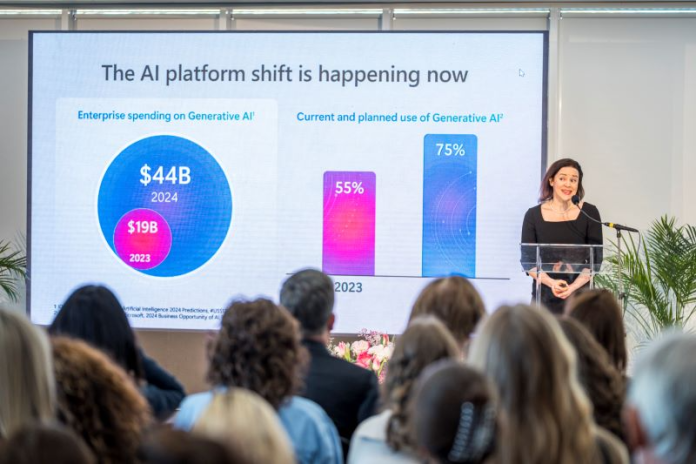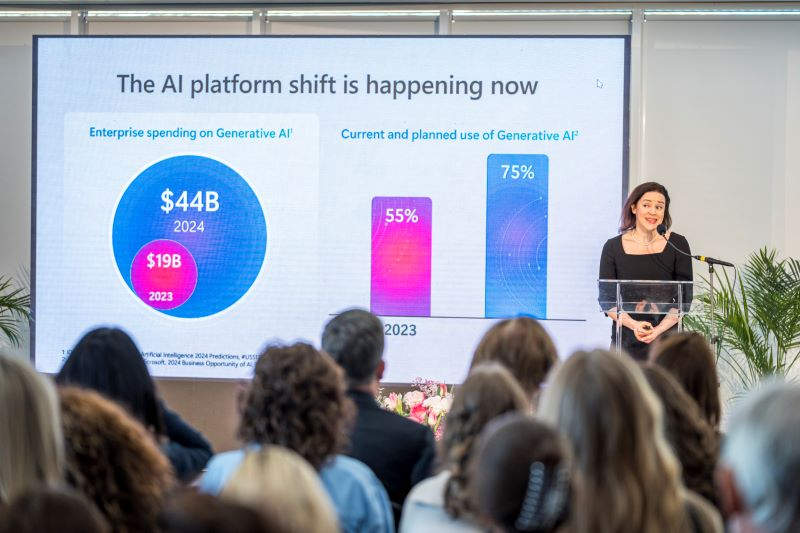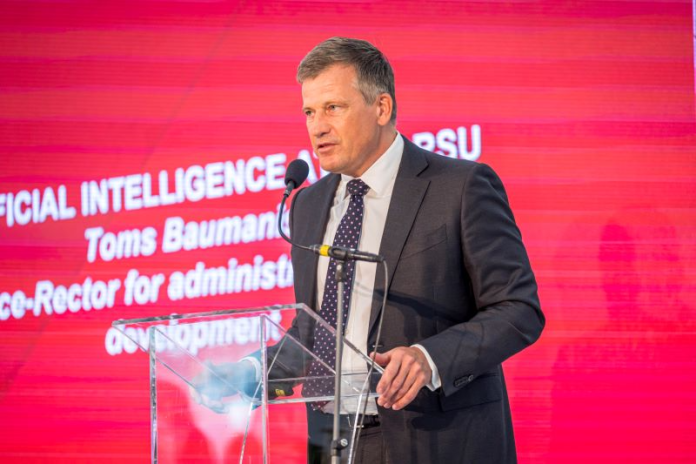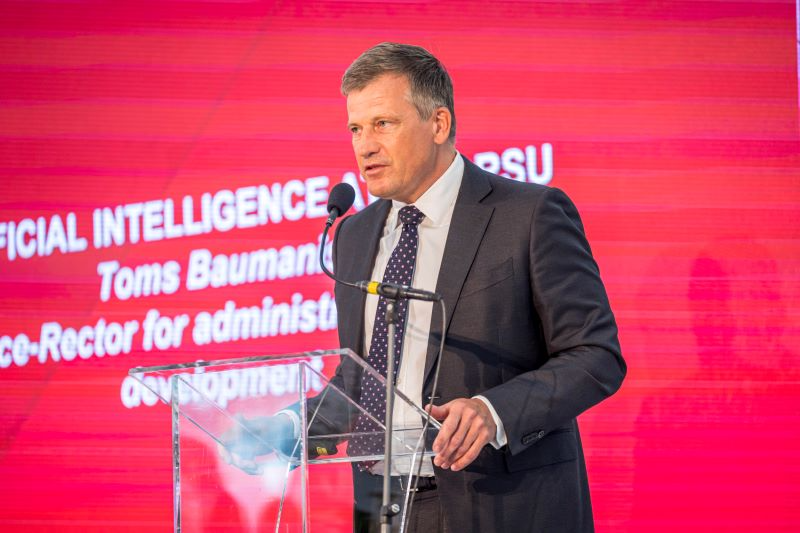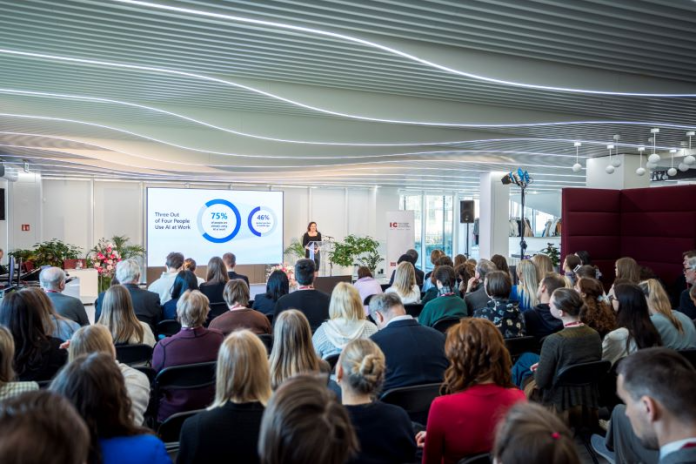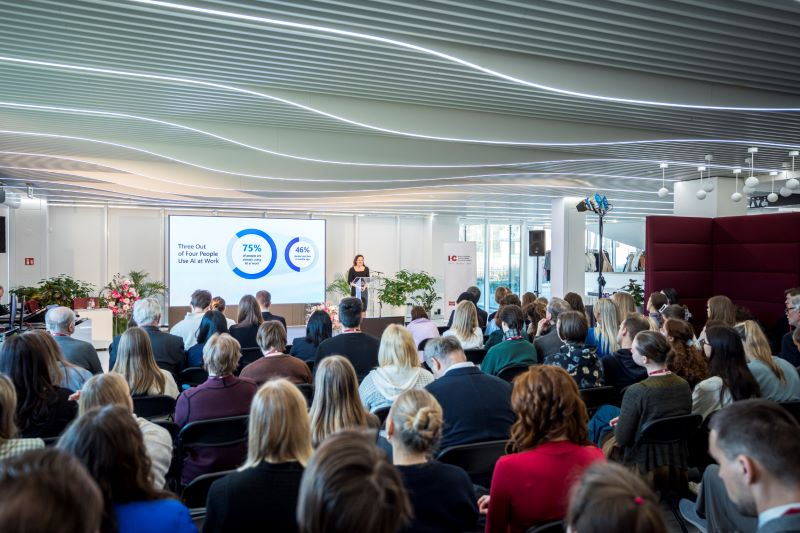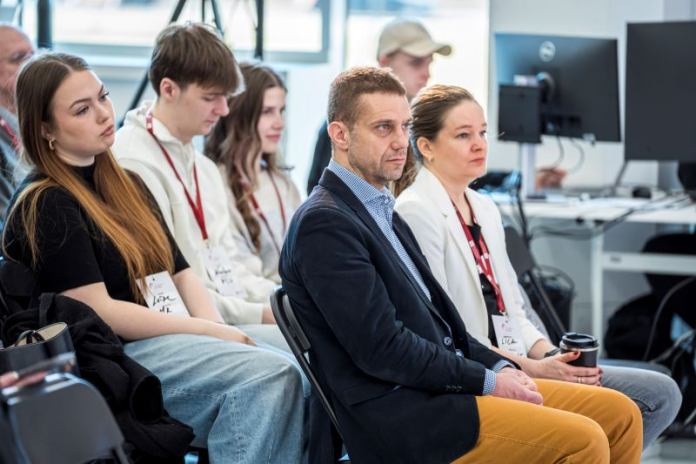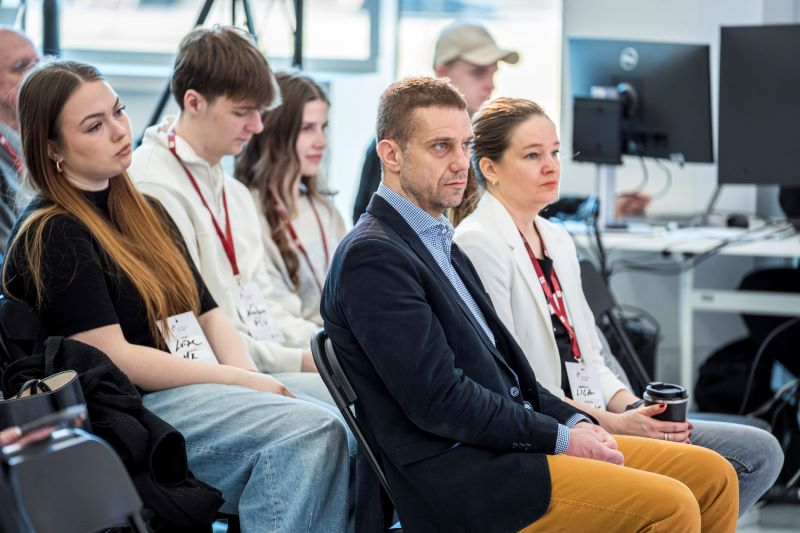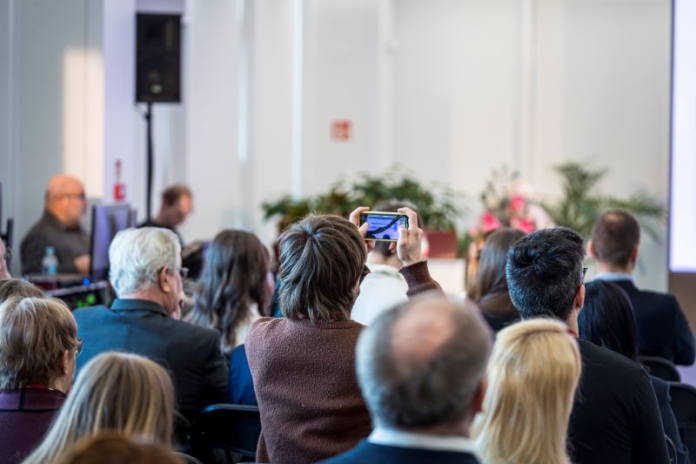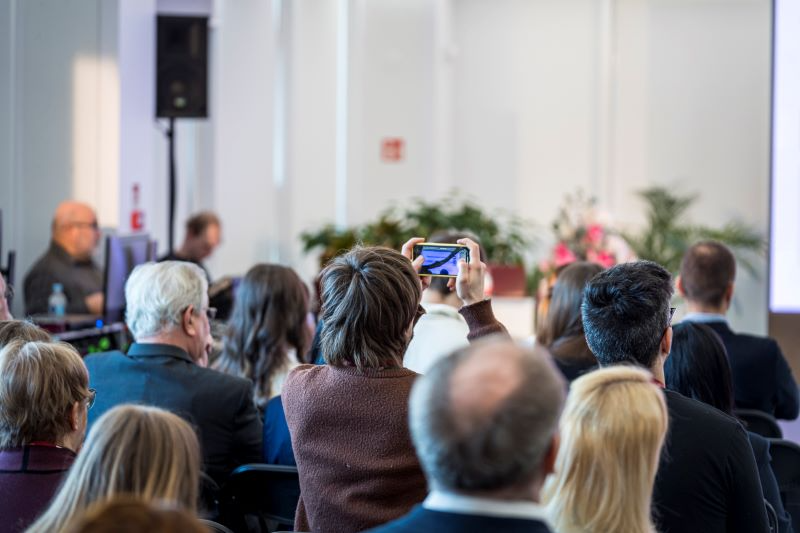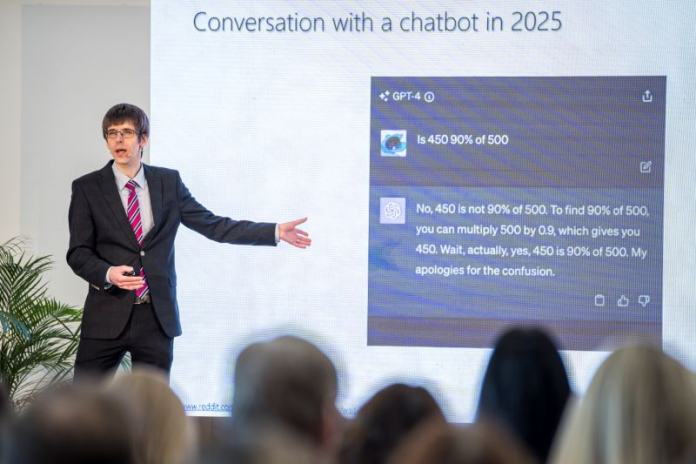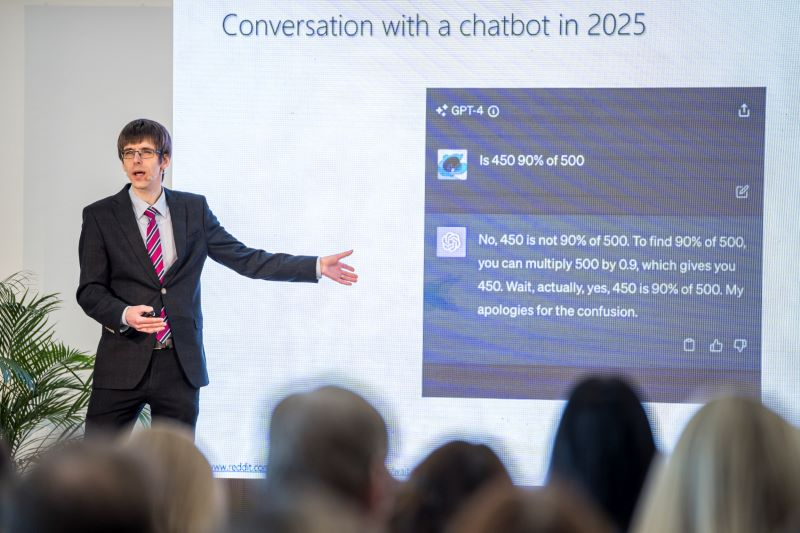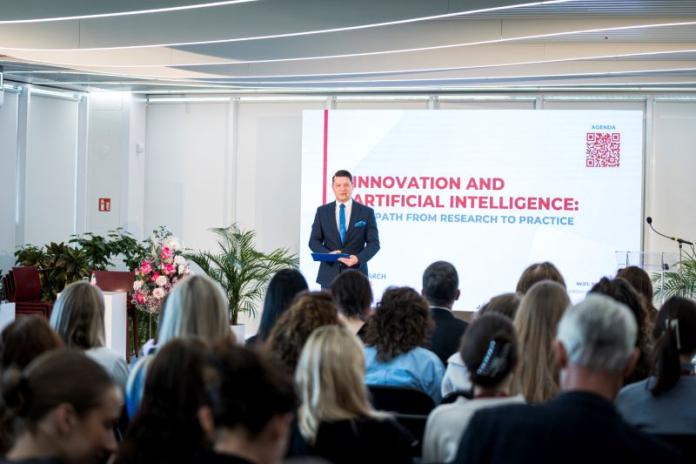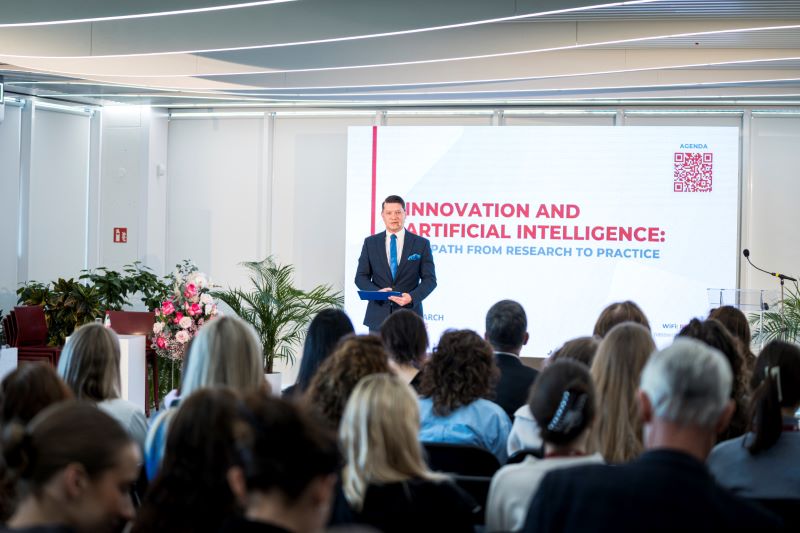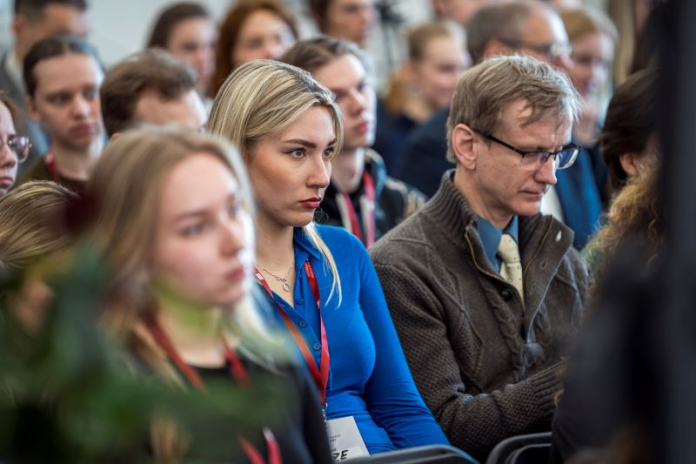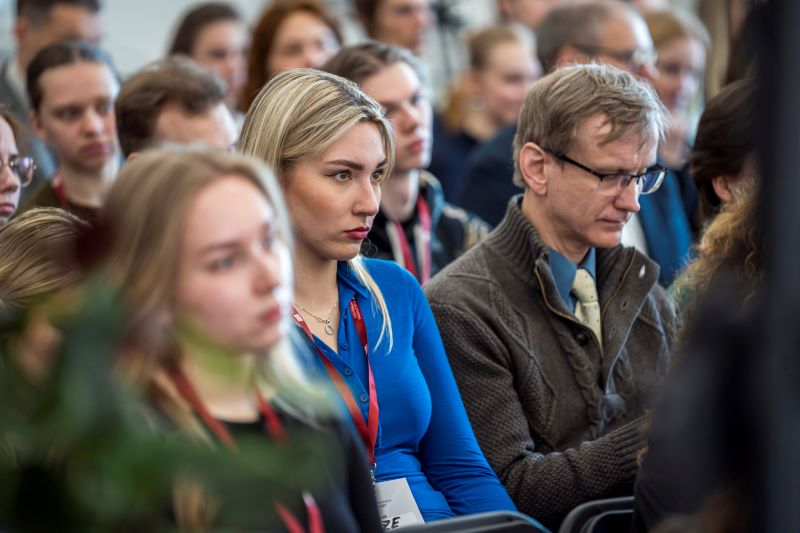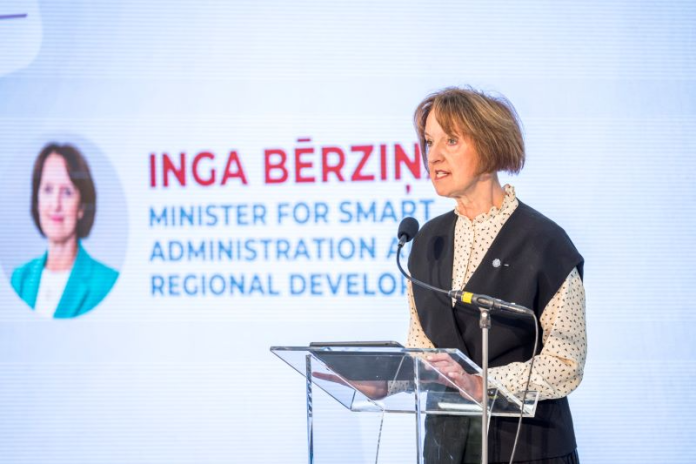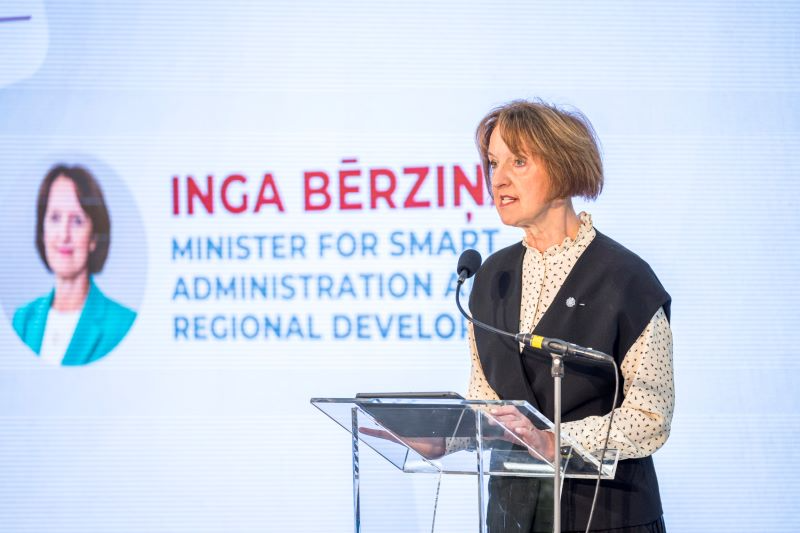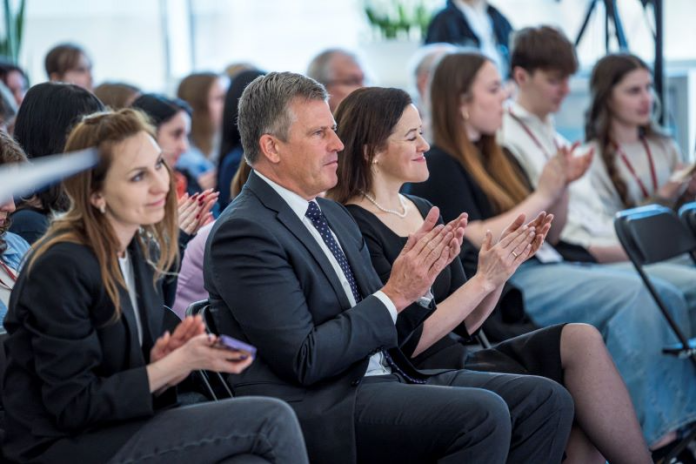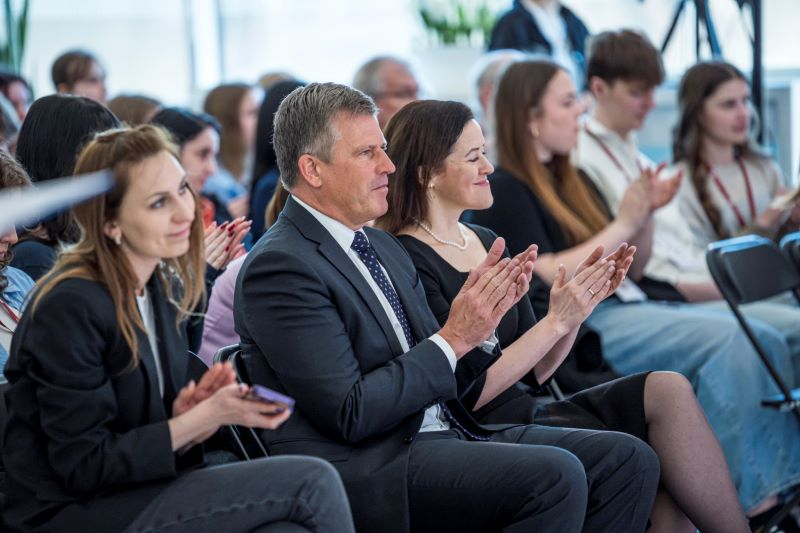Conference on innovation and AI: from research to practice
One of the key events of Rīga Stradiņš University (RSU) Research Week is the conference Innovation and Artificial Intelligence: The Path from Research to Practice. It brings together leading experts in artificial intelligence (AI), policymakers, academics, and industry representatives to discuss the role of AI in research, education, healthcare, and society at large.
On the opening day of the conference, Aiga Balode, Deputy State Secretary for Digitalisation and Change Management at the Ministry of Health, and Dins Šmits, RSU Vice-Rector for Academic Affairs, joined experienced experts in the field—including health innovation expert Dr Tamar Raz from Israel and Thomas Höfer, Country Manager at Roche Diagnostics Baltics—for a panel discussion on innovation in healthcare.
Latvia aims to become a leading AI nation—RSU joins the initiative
The conference was opened on 27 March by Inga Bērziņa, Minister for Smart Administration and Regional Development of Latvia, who emphasised the country's commitment to becoming a leading AI nation. She highlighted that the Ministry is the responsible institution tasked with putting AI into practice.
An agreement is expected to be signed next week for the establishment of the National AI Centre, with RSU participating as one of the founding members.
The agreement will be signed by representatives of state institutions and industry, including RSU Rector Prof. Aigars Pētersons, further reinforcing the University's role in establishing the centre and advancing AI development in Latvia.
RSU's role in AI development and study programmes
In his speech, RSU Vice-Rector for Administration and Development, Toms Baumanis, emphasised that the question is not only whether we want to be at the forefront of AI development, but also whether we are equipped to take a leading position in this field. He pointed out that RSU is already advancing in research, studies, and administration. Evidence of this includes the two new master’s programmes launching in the upcoming academic year in September: "Digital Strategies and AI Management" and "Digital Health." Additionally, RSU has developed AI guidelines for universities, and AI tools are being used to analyse student feedback at the end of courses and programmes.
AI and data science as directions for future development
Speaking about directions for future development, Toms Baumanis emphasised RSU's commitment to offering new AI and data science courses as part of the university's lifelong learning programme. There are also plans to develop the content of courses that will be partly or fully taught by AI, making them available at both undergraduate and postgraduate levels. At the same time, a competitive grant scheme will be set up to fund the innovative use of AI in existing courses. This approach will provide an opportunity for opinion leaders to stand out and will encourage the integration of AI solutions into the wider context of higher education.
Opportunities for AI in health and public welfare
Renāte Strazdiņa, who guides organisations in implementing responsible AI in line with ethical and legal standards, also spoke at the conference. Her professional experience covers IT strategy, digital transformation, and sustainability issues. In her keynote speech, she stressed that universities are places where multi-layered and critical discussions take place, so conferences like this are crucial for building leadership at a time when AI technologies are rapidly becoming part of our everyday lives. She pointed out that around 75% of people now use AI in their work, with the figure being even higher in Latvia. Moreover, it is not only young people who use these tools—people of all generations use AI actively.
About the conference
The conference Innovation and Artificial Intelligence: the Path from Research to Practice focuses on the potential of AI in healthcare, from patient care to improving public health. Experts and policymakers share their experiences on the role of innovation and the impact of AI in medicine, discussing the potential of technology to enhance the quality of everyday life. The integration of AI in health systems, the management of digital transformation, and the responsible use of technology to ensure sustainable, ethical, and human-centred development are also key discussion points.

